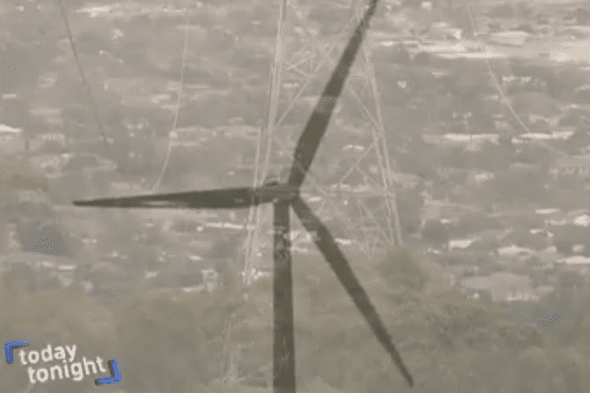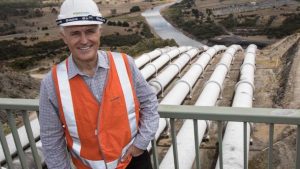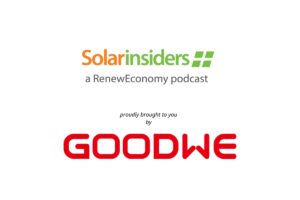Over the last few weeks we’ve been giving the Murdoch press a bit of a hard time over its regular publication of erroneous claims that South Australia’s electricity price rises and spikes are being caused by the state’s high penetration of renewable energy. But we should clarify; they are not the only offenders.
On Monday, the Adelaide branch of the Seven Network’s daily current affairs program, Today Tonight, ran with a similar anti-renewables slant, as it has done before. And, like much of the Murdoch media’s reporting, its chock full of errors.

The program opened by recalling South Australia’s November 2015 black-outs – a predictable starting point for a renewables witch hunt, considering that was the reaction of the mainstream media back when the outages occurred.
According to Today Tonight Adelaide reporter, Hendrik Gout, “the November night the lights went out” happened because of the “state’s reliance on ‘unreliant’ energy”.
Never mind that this is simply not true. As we reported at the time, “there was only one technology that abandoned its post on Sunday evening, and that was the massive transmission line linking Victoria and South Australia.”
And, as the Australian Energy Market Operator later concluded in a report, the black-out caused by a switch failure lasted much longer than needed because a gas-fired generator failed to follow instructions, causing the system to trip again. The blackout had nothing to do with renewables at all.
That claim should not be a surprise coming from Gout, who was a former senior staffer for South Australia Liberal David Ridgway, the party’s leader in the upper house.
The Coalition in South Australia is notoriously anti-wind, feeding rubbish data to The Australian last week that had to be retracted. Ridgway is also the instigator of an ongoing upper house inquiry into wind energy.
Gout’s program went on to interview two different South Australian business operators: one a farmer/irrigator in the Riverland region who complained – not without reason – that the state’s high power prices had made his business less competitive; and one a micro-brewer on the Murray, who similarly seemed to suggest that power supply difficulties had restricted the growth of the business.
But something didn’t quite gel with these interviews, so we decided to talk to the people ourselves.
First, the brewery. In the Today Tonight report, Gout spoke to Jack Beavis, a brewer at the Woolshed Brewery, which is a former woolshed, converted into a very basic micro-brewery, as part of the Wilkadene Above Renmark Experience, which also features houseboat and cottage accommodation.
In the interview, Beavis said the business had reached the limits of where it could expand to “as far as the power consumption goes” and that they were “basically going around the property and turning things off to run the brew house as it is.”
“Must make it pretty hard,” Gout proffered. “Um, it keeps you on your toes,” a perceptibly uncomfortable Beavis responded.
But what wasn’t communicated in this interview was that Wilkadene Above Renmark has a 30kW solar PV system, an investment the family-owned business is obviously very proud of, judging by this page dedicated to solar energy on its website. It says:
“In order to realise our long term dream of being a completely green, carbon neutral company, we now have over 30kW of solar panels installed across the property and houseboats.
“This solar input, as well as our water and general waste saving initiatives in the brewery, compliment our water saving ideals around the home.”
Great stuff. When we asked Beavis why the 30kW PV system wasn’t mentioned in the Today Tonight report, he told us in an emailed statement: “Our solar project was one of the main points I was aiming to get across. But from viewing the piece, it seemed to get lost in the edit.”
Beavis also told us that the solar system offsets 100 per cent of the brewery and houseboats’ power consumption.

Chances are, the ritual of “going around the property and turning things off” is part of the company’s stated commitment to be sustainable, energy efficient and to make the most of its solar generation – no doubt motivated at least in part by cutting grid costs. Perhaps that got lost in the edit, too.
And it turns out that the situation with another of Gout’s interviews was not quite what it seemed, either.
Ben Haslett , the general manager of Woolenook Fruits near Renmark, was filmed standing in front of his hi-tech processing shed with a diesel generator running in the background, being quoted about the perils of unreliable and costly electricity.
“Without that reliable affordable supply, we’re not in business,” Haslett said, to which Gout adds, “which is why we’re now hearing a diesel generator in the background.”
Actually, the vast majority farmers – not just in South Australia, and not just in Australia, for that matter – own diesel power generators, or some other back-up power system, as a matter of course, in case a grid outage or natural disaster happens to cut power supply to the mostly remote rural businesses.
This was the case before the advent of renewable energy and it is the case now – although, increasingly, these diesel generators are being replaced with off-grid solar and storage systems, even by Australian utilities.
In Haslett’s case, it just so happens that the plant in question is not connected to the grid. That, Haslett told us, was because of the huge costs of connection and the annual grid charges.
Grid costs, we should remember, account for around half of all bills, and farmers, particularly irrigators, are incensed with the costs of network and the way that tariffs are structured.
“There is a huge annual cost even before you flick on the light switch,” Haslett told RenewEconomy. So he decided to go off grid and turn to diesel instead.
When battery costs come down, he added, he will be interested in a combination of solar, battery storage and diesel.
“We’ve got a lot of roof space here,” he said over the phone. “The take home message is this: Renewables are fine, but the key for us is reliable, affordable, power.”
Given the cost of diesel fuel, we reckon there must be an opportunity there for someone to show Haslett how solar and maybe even storage can already save money through diesel displacement.
As for Gout and the Murdoch media, it seems they simply don’t want to know.







